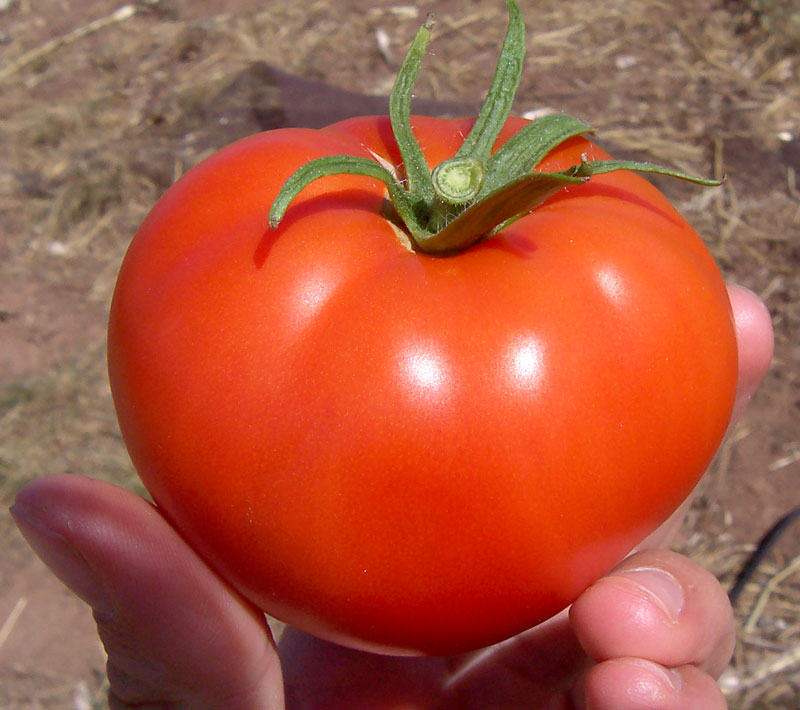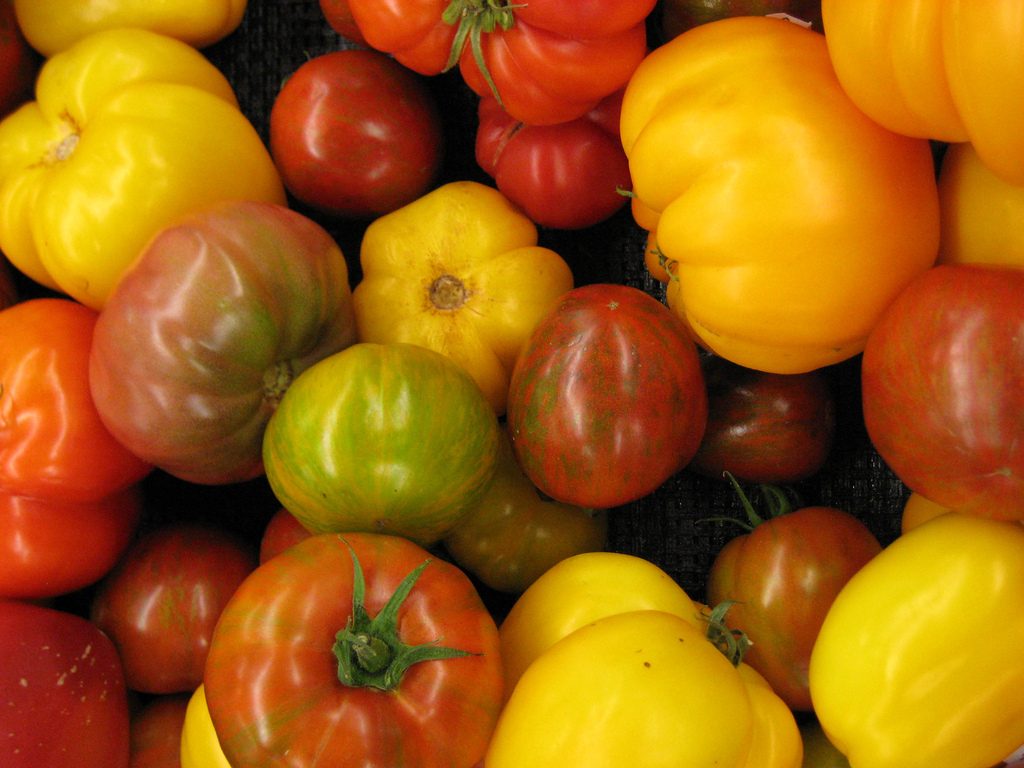Selecting varieties of vegetables can seem daunting when all you want is a slicing tomato and there are nine slicer options on the shelf. How to choose? Why should you pick one variety over another, and what’s the difference between hybrids and heirlooms, anyway?
Hybrids: Plants are a cross between varieties as a result of pollination & selective breeding. Each parent plant brings different characteristics to the table (just like people!) and the resulting plants have a combination of desirable traits. Generally, hybrid plants have increased disease resistance, increased yield over other varieties, and their fruit ripens more quickly than heirloom fruits. They may also be bred for unique colors, shapes, or sizes. Keeping in mind that it took two different plants (with specific traits) to create the hybrid, it makes sense that seed saved from these plants will not produce the same “children”– just as a child is not a clone of either parent. Humans have been hybridizing plants for nearly as long as we have been planting them and it is a very natural way to produce plants that match our current needs.
Heirlooms or Heritage: Plants meet specific criteria to qualify:
1) Variety has been in production for over 50 years or was grown prior to 1940
2) Plant can be open-pollinated to create viable seed (many hybrids produce sterile seed, since the resulting seed creates undesirable traits)
3) Seeds produced will create a plant that is similar to the parent plant
Heirlooms are maintained for many reasons, and the foremost of these is flavor. Fruits often have a shorter “shelf life”, generally take longer to ripen, and the plants have less disease resistance than hybrids (which have been bred to combat these challenges). But, oh! The sweetness and flavors are amazing, and it is well worth including them in your garden. It is also nice to know that you are experiencing flavors and colors that your ancestors would recognize.
Genetically Modified Organisms, or GMO: Plants (as well as animals & bacteria) have had genes added or subtracted to their DNA by means of genetic engineering. This is done to increase yield, pest/disease resistance, herbicide resistance, or to create otherwise desirable traits. It is extremely rare for the home gardener to encounter GMO plants or seeds. The breeding is expensive, and consequently most of the research is centered on commercial cash crops such as corn, canola, soy, or cottonseed. Studies have shown both positive and negative impacts of this engineering and public opinion remains mixed. GMO crops are grown as large scale, commercial farming crops. It is extremely unlikely for the home gardener, or even your local garden center, to have the option to purchase a GMO plant or seed, a concerned gardener can opt to purchase only seed that specifies that it is non-GMO.
Back to the original question— why should you choose one type over another? Most of us here at Echter’s grow a mix of heirloom and hybrid varieties. Those growing in containers will probably select hybrids, as there are varieties that have been bred to stay petite and won’t take over a patio. Gardeners with a lot of space and the willingness to wait until late summer for fruit will likely choose heirlooms. Mountain gardeners need plants can handle a chill and fruit quickly. Most of us fall somewhere in between and want some early hybrid fruits and a smaller, later crop of heirlooms. Mixing and matching your varieties will give you a steady stream of fruit throughout the summer and encourage you to try something new each year.